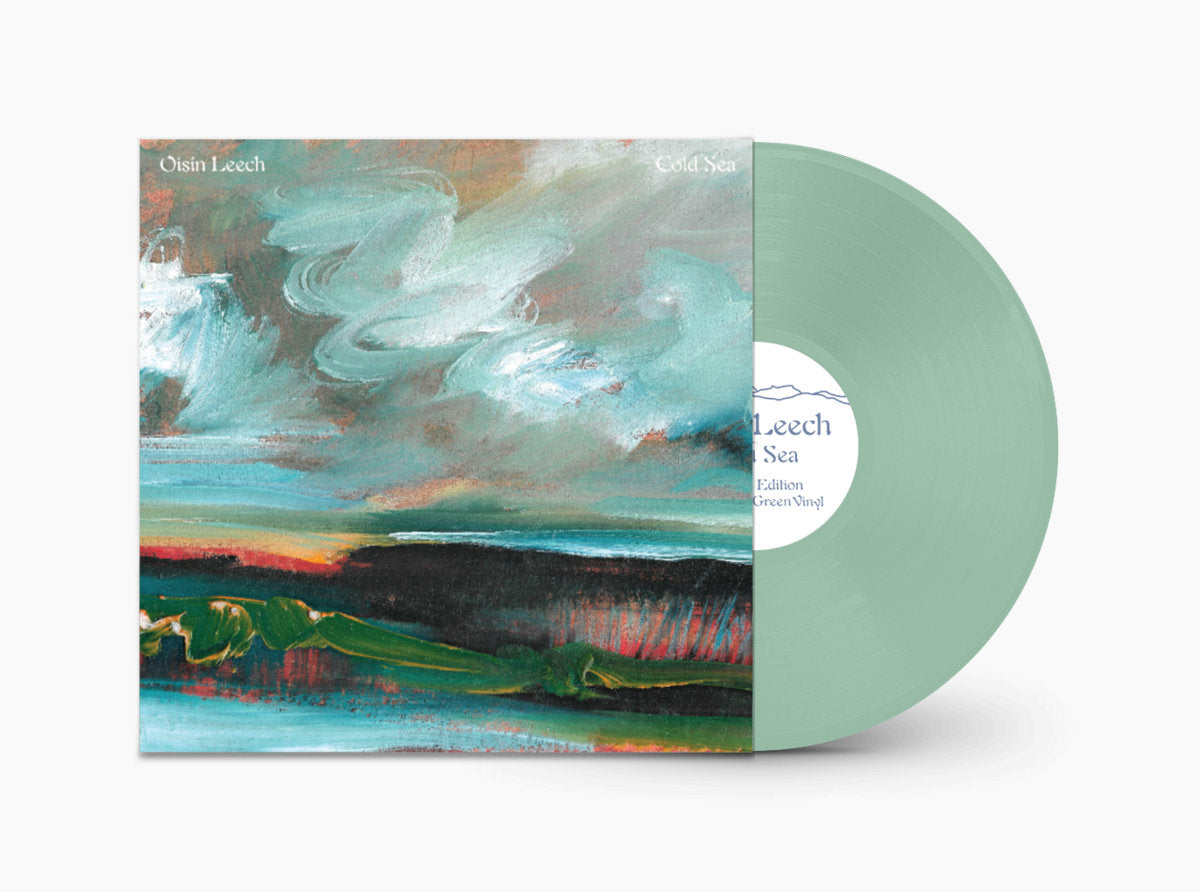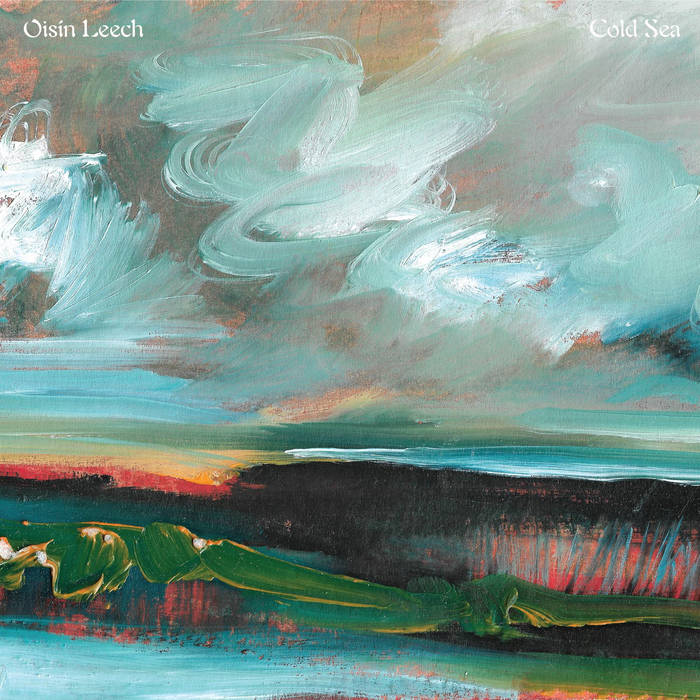Outside Music / Next Door Records
Oisin Leech - Cold Sea
Oisin Leech - Cold Sea
Couldn't load pickup availability
Beside Trawbreaga Bay, in Co. Donegal, on the north coast of Ireland, in an old schoolhouse, with a suitcase full of hired recording gear, Oisin Leech strums gently on an acoustic guitar and watches the tide pull the water away from the ancient inlet. The thickness of Oisin’s voice soothes the old world room as the sound waves bounce around in the land where his ancestors still live and still wander.
This is a scene from the makings of Oisin Leech’s first solo album Cold Sea. After a musical history that led Leech from the street punk bands of yesteryear through an ongoing seven-album stint with folk duo The Lost Brothers, he found himself for the first time working on songs to sing alone. The thought of performing songs with no accompanying harmony and minimal arrangement led Leech to soul-search for new expressions and ways of playing. Throughout the great pause of the pandemic, after his family had gone to bed, Leech sat by the fireplace experimenting with open tunings. The poems of Seamus Heaney and Leech’s own history as a studied playwright inspired the words. In his mind, the songs became imagined vignette films playing behind closed, guitar eyes. After writing nearly 40 new songs in this fashion Leech wrote “October Sun” which would become the foundation for Cold Sea.
“All of a sudden I had a collection of songs that told a complete story. Looking back I see I had created a new world.”
Seeking a producer for the record, Leech made a list of several people he’d like to work with. The first was guitarist and songwriter Steve Gunn, who happily accepted after hearing a demo of 'October Sun'. Leech was sitting on a dream of making the record in Donegal Ireland, a county significant to Leech because it is the place from where his ancestors come from. Pitching this idea to Gunn sparked the first of several serendipities circling the Cold Sea sessions - Gunn had always wanted to visit Donegal to connect with his own familial roots in the region.
Oisin and Steve have just met up and begun their odyssey through the Irish countryside to the coastal school house they intend to convert into a recording studio for a four-day session. On the first night of the journey, they make a stop off in Downings, Ireland where Steve’s grandmother had lived before emigrating to America. They share a plate of fish and chips and pints of Guinness at the Olde Glen Bar where Steve’s great-grandparents met. After dinner, they jump in on a traditional Irish pub jam, sharing songs and drinks into the night. Some of Steve’s distant cousins happen to be at the bar that evening. The synchronicity of the journey continues further as someone recommends Oisin and Steve visit a local music historian of sorts named Billy Robinson. Billy has worked with artists like Clannad and John Lee Hooker in the past and happily lends the two total strangers some vintage recording gear, including a ’70s U87 microphone that winds up contributing greatly to the sound of the record.
One of the first things the listener may notice about the Cold Sea album is its tremendous warmth. Each song was recorded effortlessly in just a few takes and adorned gently with synthesizers and guitar from Gunn. Several songs feature contributions on the upright bass by Bob Dylan band stalwart Tony Garnier. M. Ward plays guitar on “October Sun” and there are strings by Roisín McGrory and bouzouki by Irish folk legend Dónal Lunny throughout. It is a friendship record but even at its most collaborative, Cold Sea remains centered around the humble acoustic guitar and wool blanket vocals of Leech.
“Music is a feeling for me. Understanding it or being able to explain it is less interesting. If music makes you feel a certain way, that’s what matters”. Oisin exclaimed to no one, on a pier-side, watching the sun change on the open water.
Leech read Bruce Chatwin’s Songlines while dreaming up the songs on Cold Sea. The book tells of the Aboriginal Outback tradition of songs as maps. The album acts in this fashion to express the landscape and atmosphere of where it was made. Intellectually the songs are about many things, including the healing power of the ocean, but in essence they come from deep within their songwriter. “Every time I sing each of these songs a very very clear film starts in my head”, says Oisin. The album's opener “October Sun” plays like a colourful landscape painting rich with sadness just beyond understanding.
The song “Colour of the Rain”, with its odd guitar tuning and carefully scored bass part from Garnier, poetically traces chapters of Leech’s life that unfold in a flash of the northern lights, often visible from Donegal. Leech spent months finding the words to express these feelings.
The song “Trawbreaga Bay” originally had 20 verses before Leech trimmed it down to an easy 3. On the album's instrumental explorations, one can easily smell the air of the northern coast -particularly the song “Maritime Radio” which embodies the region while finding poetry in a radio shipping forecast. With this firm sense of setting, Cold Sea carries a somber and comforting tone that rolls over the listener in healing waves.
Both Oisin and Steve do not hesitate to use the word 'magic' when describing both what happened in Donegal and the music that resulted. There is no other way to put it.
'Cold Sea' is out March 8th 2024 on Outside Music and Tremone Records.




